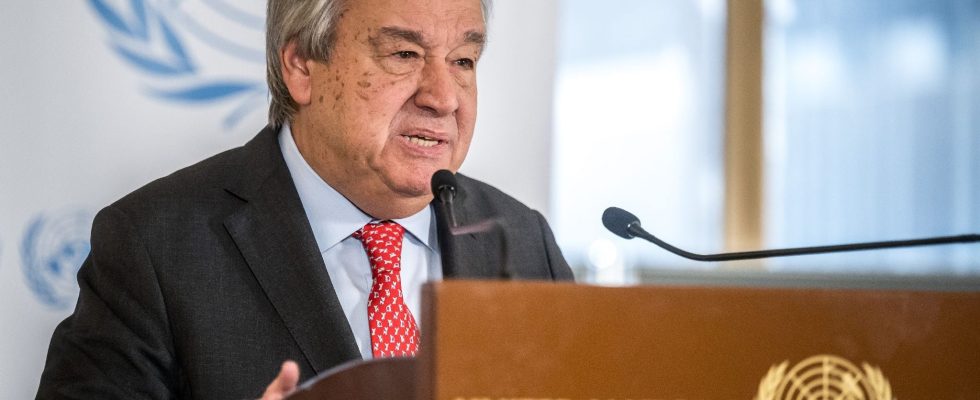His job is one of the most difficult in the world. An almost impossible mission. On the conflict in Gaza, his positions are far from unanimous. After condemning the acts of terror of October 7, 2023 in Israel, the UN Secretary General drew the wrath of the Jewish state, believing that the Hamas attacks did not occur “outside of any context” and that the Palestinians had “suffered fifty-six years of stifling occupation”. Since then, this 74-year-old Portuguese has continued to denounce the “clear violations of international law” in Gaza and to call for a ceasefire. In December, he invoked Article 99 of the Charter, a rarely used power that allows a secretary-general to draw the Security Council’s attention to a subject dangerous to international peace. And in March, he went to the Egyptian side at the Rafah border crossing to denounce the Palestinians’ “endless nightmare”. To the point that some criticize him for forgetting the tragedy of the Israelis.
All this without much result. Maintaining peace is “often a Sisyphean task”, recognizes this cultured polyglot, passionate about history and opera, who first made a name for himself by climbing the political ladder in his country. Eager to push his social ideas, the young engineer, a practicing Catholic, became a member of the Socialist Party in 1974, the year of the Carnation Revolution. He rose to its head in 1992 and added a rose to the closed fist symbol to give it a more social democratic image. Three years later, Antonio Guterres was appointed Prime Minister. The man is popular even though – a shame for a Portuguese – he doesn’t like cod. It invests in education and creates a minimum income for integration, while continuing privatizations and reducing the deficit. In 1998, despite the death of his wife, he relaunched the campaign and became Prime Minister again. The socialists do not have a majority, which forces him to maneuver. And already, he is accused of seeking too much consensus. After the Party’s defeat in local elections, he resigned in the middle of his second term.
It was then that he gave a new direction to his career. He was elected to the leadership of the Office of the High Commissioner for Refugees (UNHCR) in 2005. Under his supervision, the role of the UNHCR increased, partly due to the explosion in the number of refugees. It gains donor support through a reduction in headquarters operating costs.
After this successful experience, he took over as head of the United Nations in 2017. “At the UNHCR, he was very effective and we thought that it would be the same at the UN. But the general feeling is rather to disappointment, believes Jeffrey Feltman, former UN under-secretary general for political affairs, for whom “it is not entirely his fault, because he operates in an extremely difficult environment”.
“Exceptional bad luck”
Antonio Guterres experienced “exceptional bad luck”, adds Richard Gowan of the International Crisis Group. “He spent most of his first term managing Donald Trump and doing damage control. After the Republican president left office, Guterres thought he could play a bigger role. And then there was Ukraine, Gaza”… and the pandemic. He did not remain inactive. In addition to his rant against Israel, he vehemently condemned Russia during the invasion of Ukraine. And he was involved in the grain agreement between Moscow and kyiv, “probably his greatest diplomatic success”, continues Richard Gowan, even if it has since collapsed.
Here again, he is criticized for being too cautious and not wanting to upset anyone – especially not the Chinese. He is accused of not having mobilized enough on Sudan and Ethiopia, and of not having put enough pressure on Russia. “There is a bland, although conscientious, side to his first mandate,” writes historian Stephen Schlesinger, a specialist in the United Nations. “By keeping a low profile, he may have missed a unique chance to promote the UN and himself. -even.”
At the same time, retorts another expert on the organization who prefers to remain anonymous, “the secretary general has no money, no power to sanction and he finds himself with a Security Council paralyzed by tensions.” This explains, adds Jeffrey Feltman, why “he has chosen to focus on battles where he has sufficient support from member states and public opinion, such as Gaza, artificial intelligence or action on climate. “. Not sure that this is enough to restore its image.
.
